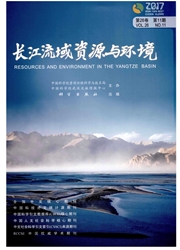

 中文摘要:
中文摘要:
分析了“湿地保护项目是如何改善民众生计的”这一问题。采用2000~2005年1474个农户调查问卷作为基本数据,其中964个农户位于洞庭湖西畔山洲垸。得出6个结论:①WWF在西畔山洲垸的替代生计示范项目增加了农户的收入和福利,降低了脆弱性,增强可持续利用的自然资源基础;②妇女、老人以及低收入群体从项目中获益;③参加项目的农户比未参加项目的农户拥有更多的收入和财产;④与2000年项目开始时相比,生计水平有了持续的改善;⑤生计改善的原因是当地社区的积极参与、国家政策机遇、伙伴关系的建立、社区基层组织建设以及适应性管理方法的应用;⑥鱼类和水鸟等返回已恢复的湿地。表明该示范项目达到了自然保护目标。
 英文摘要:
英文摘要:
This present study is to answer the question "How have WWF's freshwater conservation activi ties improved people's livelihoods? " It is one for four WWF global case studies. The systematic questionnaire surveys were used during the period from 2000 to 2005. A total of 1 474 farmer samples were obtained, in which 964 farmer samples were in Xipanshanzhou Polder, Dongting Lake. Six conclusions have been drawn from the study: (1) WWF Yangtze Programme in Xipanshanzhou Polders has resulted in four outcomes, including more income, increased well-beings, reduced vulnerability, more sustainable use of the natural resource base. (2) The project benefited women, elder farmers, and low-income groups. (3) Project households earned much more income and owned more properties than non-project households. (4) The livelihood continued to be better than when the project started in 2000. (5) The reasons for the successful projects are motivation in local community, favourable national policy, partnership building, institutional arrangement, and adaptive management and innovative approaches. (6) The return of fish and bird species and restored wetland ecosystem functions proved that the conservation objectives of the project were successfully achieved.
 同期刊论文项目
同期刊论文项目
 同项目期刊论文
同项目期刊论文
 Effects of regenerating forest cover on soil microbial communities: A case study in hilly red soil r
Effects of regenerating forest cover on soil microbial communities: A case study in hilly red soil r 期刊信息
期刊信息
